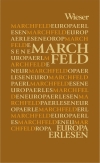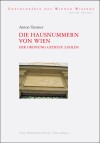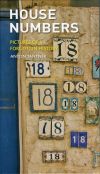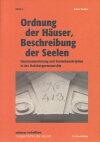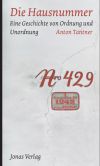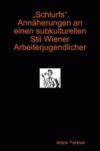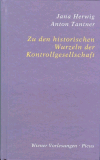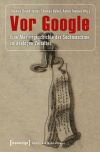Massenhaft Fehler in Zitationsindizes
Terje Tüür-Fröhlich hat sich in ihrer Dissertation intensiv mit den berüchtigten Zitationsindizes auseinandergesetzt und belegt darin deren systematische Fehleranfälligkeit. Spätestens nach dieser Arbeit bzw. der Lektüre der Zusammenfassung sollte auch den zahlengläubigsten WissenschaftspolitikerInnen und UniversitätsmanagerInnen klar sein, dass Zitationsindizes keine Basis von Entscheidungen sein dürfen.
Tüür-Fröhlich, Terje: The Non-trivial Effects of Trivial Errors in Scientific Communication and Evaluation. (Schriften zur Informationswissenschaft; 69). Glückstadt: Verlag Werner Hülsbusch, 2016. ISBN 978-3-86488-104-6 [Verlags-Info]
Kurztext:
Thomson Reuters’ citation indexes i.e. SCI, SSCI and AHCI are said to be “authoritative”. Due to the huge influence of these databases on global academic evaluation of productivity and impact, Terje Tüür-Fröhlich decided to conduct case studies on the data quality of Social Sciences Citation Index (SSCI) records.
Tüür-Fröhlich investigated articles from social science and law. The main findings: SSCI records contain tremendous amounts of “trivial errors”, not only misspellings and typos as previously mentioned in bibliometrics and scientometrics literature. But Tüür-Fröhlich's research documented fatal errors which have not been mentioned in the scientometrics literature yet at all. Tüür-Fröhlich found more than 80 fatal mutations and mutilations of Pierre Bourdieu (e.g. “Atkinson” or “Pierre, B. and “Pierri, B.”). SSCI even generated zombie references (phantom authors and works) by data fields’ confusion — a deadly sin for a database producer — as fragments of Patent Laws were indexed as fictional author surnames/initials. Additionally, horrific OCR-errors (e.g. “nuxure” instead of “Nature” as journal title) were identified.
Tüür-Fröhlich's extensive quantitative case study of an article of the Harvard Law Review resulted in a devastating finding: only 1% of all correct references from the original article were indexed by SSCI without any mistake or error. Many scientific communication experts and database providers' believe that errors in databanks are of less importance: There are many errors, yes — but they would counterbalance each other, errors would not result in citation losses and would not bear any effect on retrieval and evaluation outcomes. Terje Tüür-Fröhlich claims the contrary: errors and inconsistencies are not evenly distributed but linked with languages biases and publication cultures.
Tüür-Fröhlich, Terje: The Non-trivial Effects of Trivial Errors in Scientific Communication and Evaluation. (Schriften zur Informationswissenschaft; 69). Glückstadt: Verlag Werner Hülsbusch, 2016. ISBN 978-3-86488-104-6 [Verlags-Info]
Kurztext:
Thomson Reuters’ citation indexes i.e. SCI, SSCI and AHCI are said to be “authoritative”. Due to the huge influence of these databases on global academic evaluation of productivity and impact, Terje Tüür-Fröhlich decided to conduct case studies on the data quality of Social Sciences Citation Index (SSCI) records.
Tüür-Fröhlich investigated articles from social science and law. The main findings: SSCI records contain tremendous amounts of “trivial errors”, not only misspellings and typos as previously mentioned in bibliometrics and scientometrics literature. But Tüür-Fröhlich's research documented fatal errors which have not been mentioned in the scientometrics literature yet at all. Tüür-Fröhlich found more than 80 fatal mutations and mutilations of Pierre Bourdieu (e.g. “Atkinson” or “Pierre, B. and “Pierri, B.”). SSCI even generated zombie references (phantom authors and works) by data fields’ confusion — a deadly sin for a database producer — as fragments of Patent Laws were indexed as fictional author surnames/initials. Additionally, horrific OCR-errors (e.g. “nuxure” instead of “Nature” as journal title) were identified.
Tüür-Fröhlich's extensive quantitative case study of an article of the Harvard Law Review resulted in a devastating finding: only 1% of all correct references from the original article were indexed by SSCI without any mistake or error. Many scientific communication experts and database providers' believe that errors in databanks are of less importance: There are many errors, yes — but they would counterbalance each other, errors would not result in citation losses and would not bear any effect on retrieval and evaluation outcomes. Terje Tüür-Fröhlich claims the contrary: errors and inconsistencies are not evenly distributed but linked with languages biases and publication cultures.
adresscomptoir -
Bibliothekswesen_Recherche - Do, 13. Okt. 2016, 09:13
